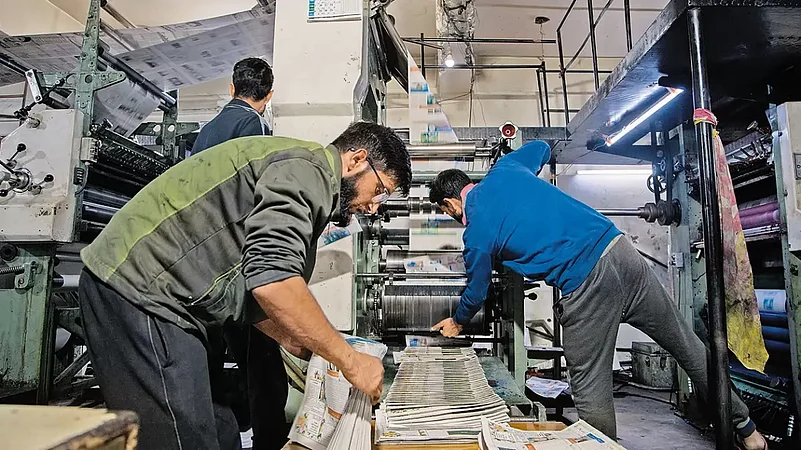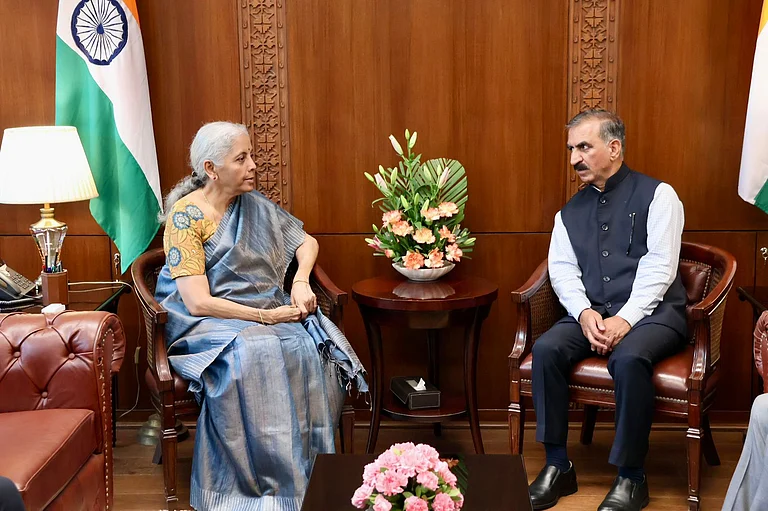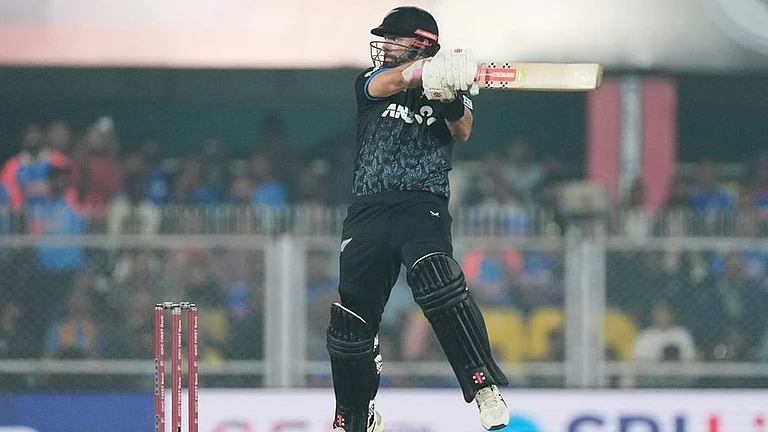Social media has changed our lives completely and made communication faster and easier but in Kashmir, it has snatched away the livelihood of thousands of newspaper hawkers who used to distribute papers to readers daily.
Parray Rather, 48, from Baramulla’s Sopore, who was a newspaper hawker and a regular reader of Kashmir-based papers, used to deliver 400 copies of newspapers to different districts of Kashmir.
“Whatever happened in Kashmir, newspapers here reported facts and figures without any fear and bias,” he says. “But nowadays, I only find advertisements in the papers, nothing which can be considered news for readers.
I don’t have any interest in reading the papers now.”
Parray started his newspaper hawking business in 1989 when Kashmir was on the edge of insurgency. Another hawker, Sheikh Aziz, 60, says that since the militancy began in 1989, there was a huge increase in the demand for newspapers. As a result, there were suddenly 200 or more newspaper merchants and hawkers in Kashmir. “There was virtually no need for newspapers prior to 1988. Then, as militancy increased, so did the demand for newspapers and news,” says Aziz.
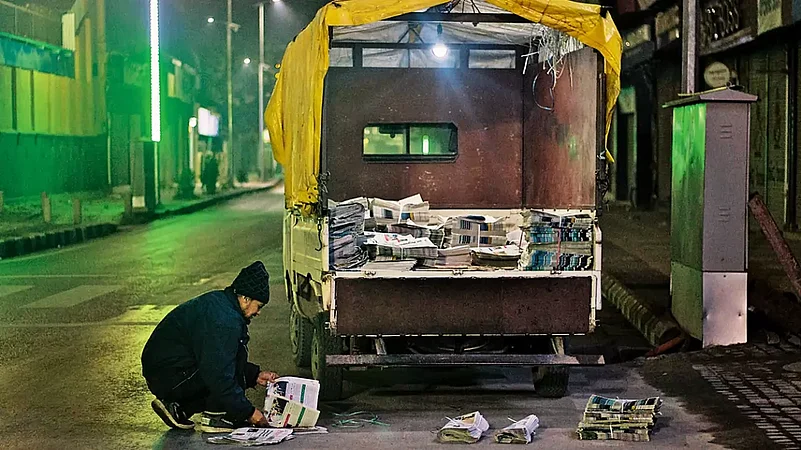
Newspaper hawkers took on a very significant role at that time. During the peak days of militancy, hawkers were considered the messiahs of truth as the electronic media was strictly controlled by the government and people did not believe their reportage. Newspapers were perceived to report events in a balanced way.
However, newspaper hawkers in Kashmir also suffered deadly violence from security forces and sometimes even civilians. Hawkers who travel long distances on bicycles also endure harsh weather conditions like torrential rain and snow and heat.
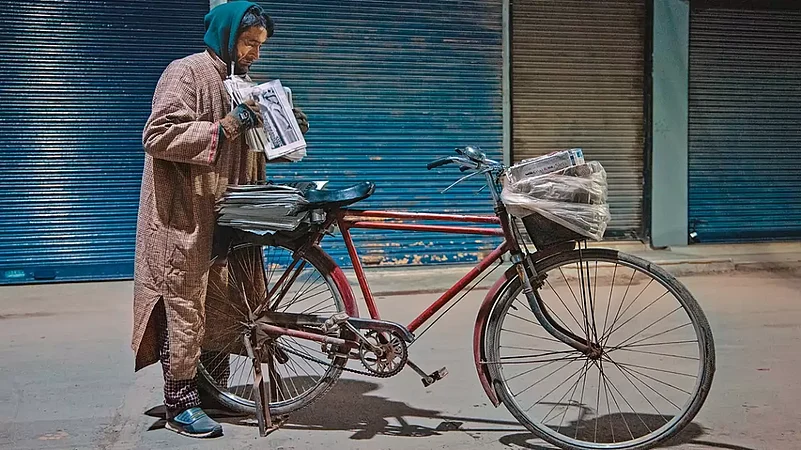
Aziz remembers a horrific incident in 1994 when militancy was at its peak, army men stopped him as he was riding his bicycle while carrying his daily stack of newspapers. “I showed them my identity card, but they did not pay any heed and beat me up,” he says. They pounded his face with a rod which had nails attached to the tip. His facial bones were broken by the assault. His family begged him to quit this job. “I left this job due to challenges and hardships seven years ago,” he says.
Increased demand during curfews and hartals
During curfews and lockdowns in Kashmir, there was no reliable source of news other than newspapers. Everyone awaited the newspaper hawker’s arrival with great anticipation, according to Ajaz Ahmed, 58, a South Kashmir-based hawker.
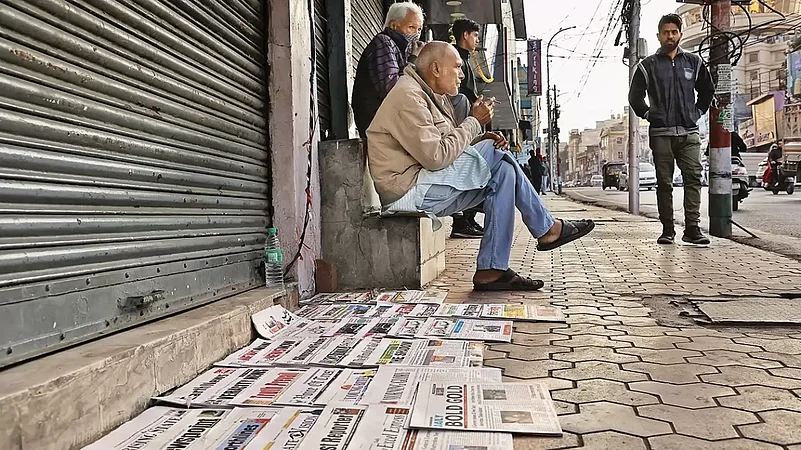
This increased demand for newspapers made newspaper vendors happy. The joy, though, was fleeting. “The newspaper hawker became a sitting duck to be targeted and the object of hatred when people had any issues with a particular paper. Several of them, especially those from the villages, were also targeted since it was believed that they were the ones sending the news.”
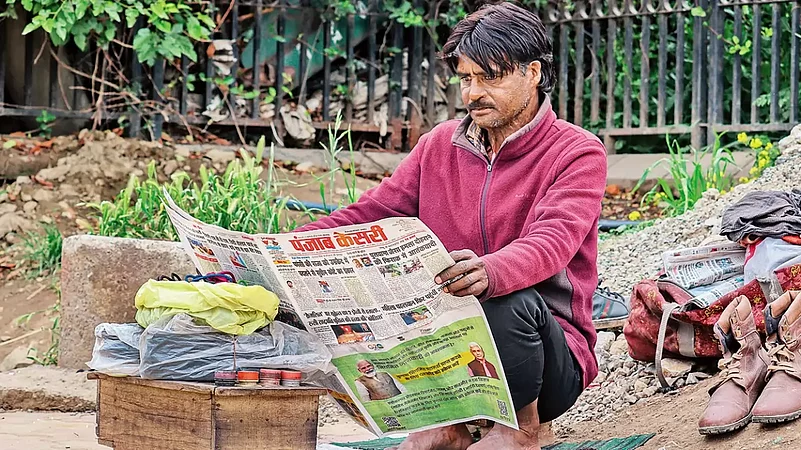
The newspaper hawker’s plight
Undoubtedly, the Internet revolutionised the social fabric, but at the same time, it proved detrimental for people like Parray whom readers in north Kashmir used to wait for eagerly every morning. “People are now getting the news online and via social media, which is killing this profession. I am now a shopkeeper as I could not earn my livelihood by selling newspapers,” says Parray.
Mubashir Naik is a freelance Journalist based in Jammu and Kashmir; Irshad Hussain is an independent journalist based in Srinagar








